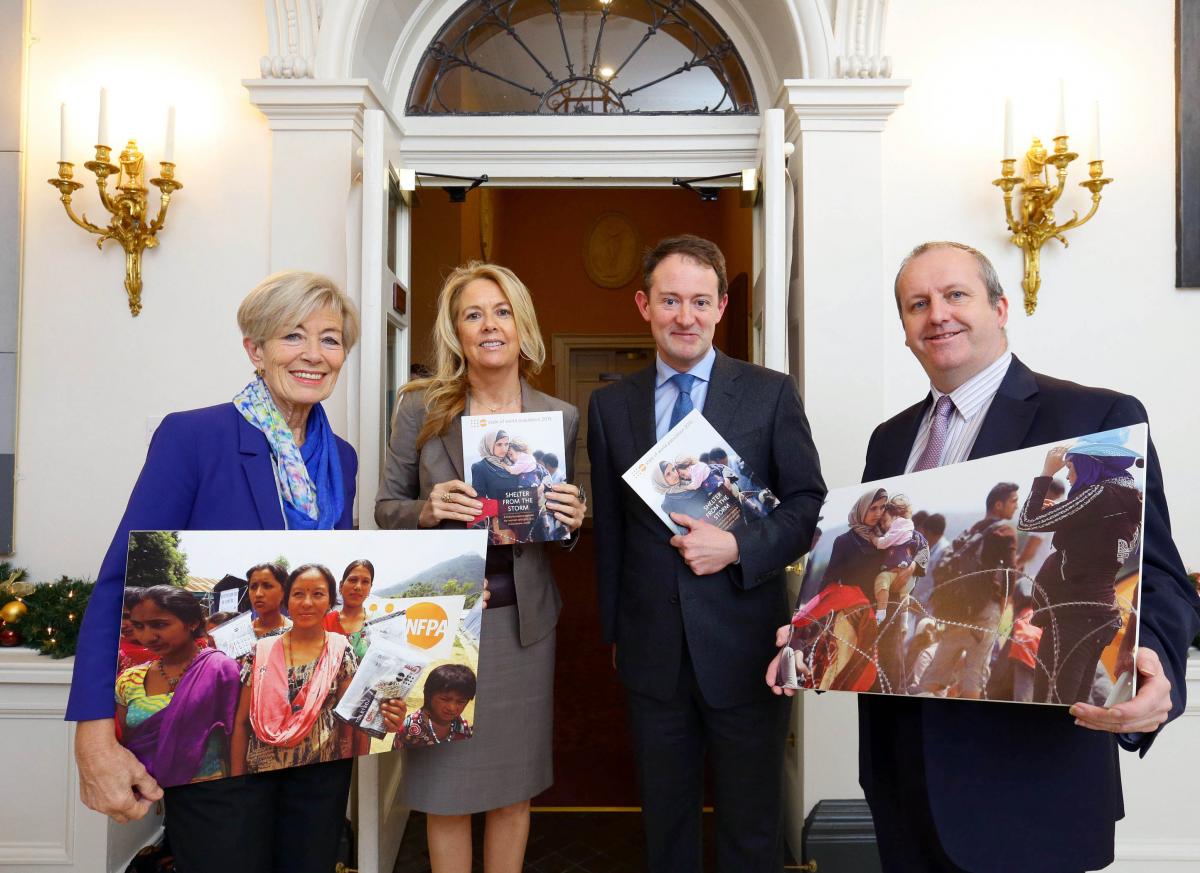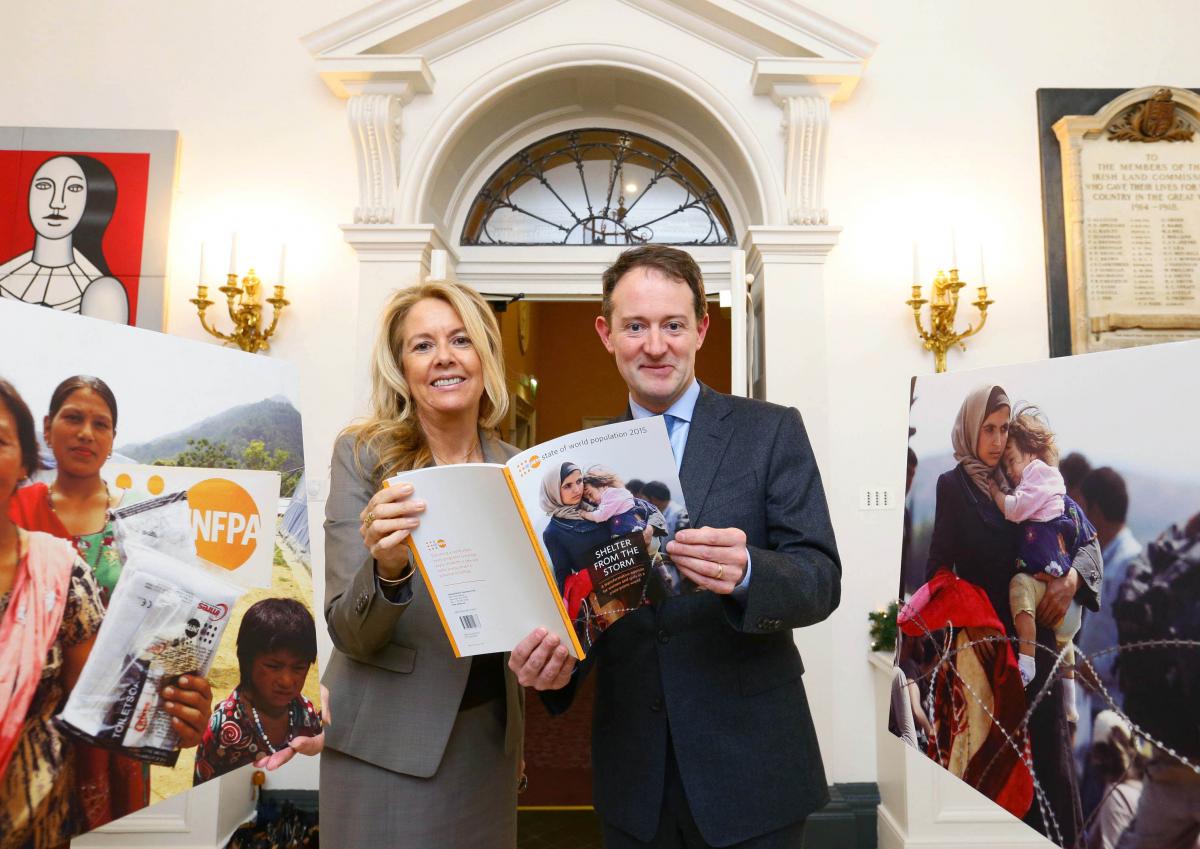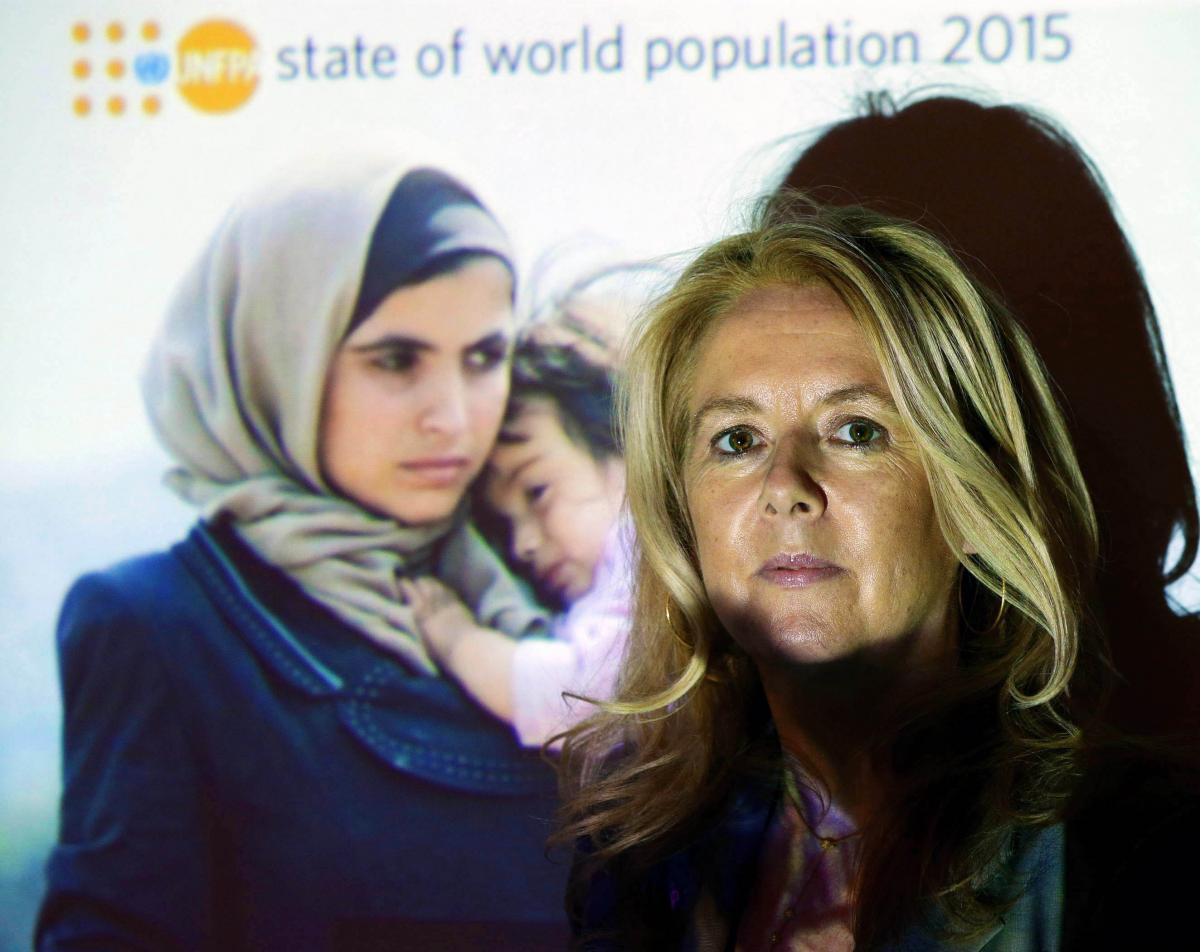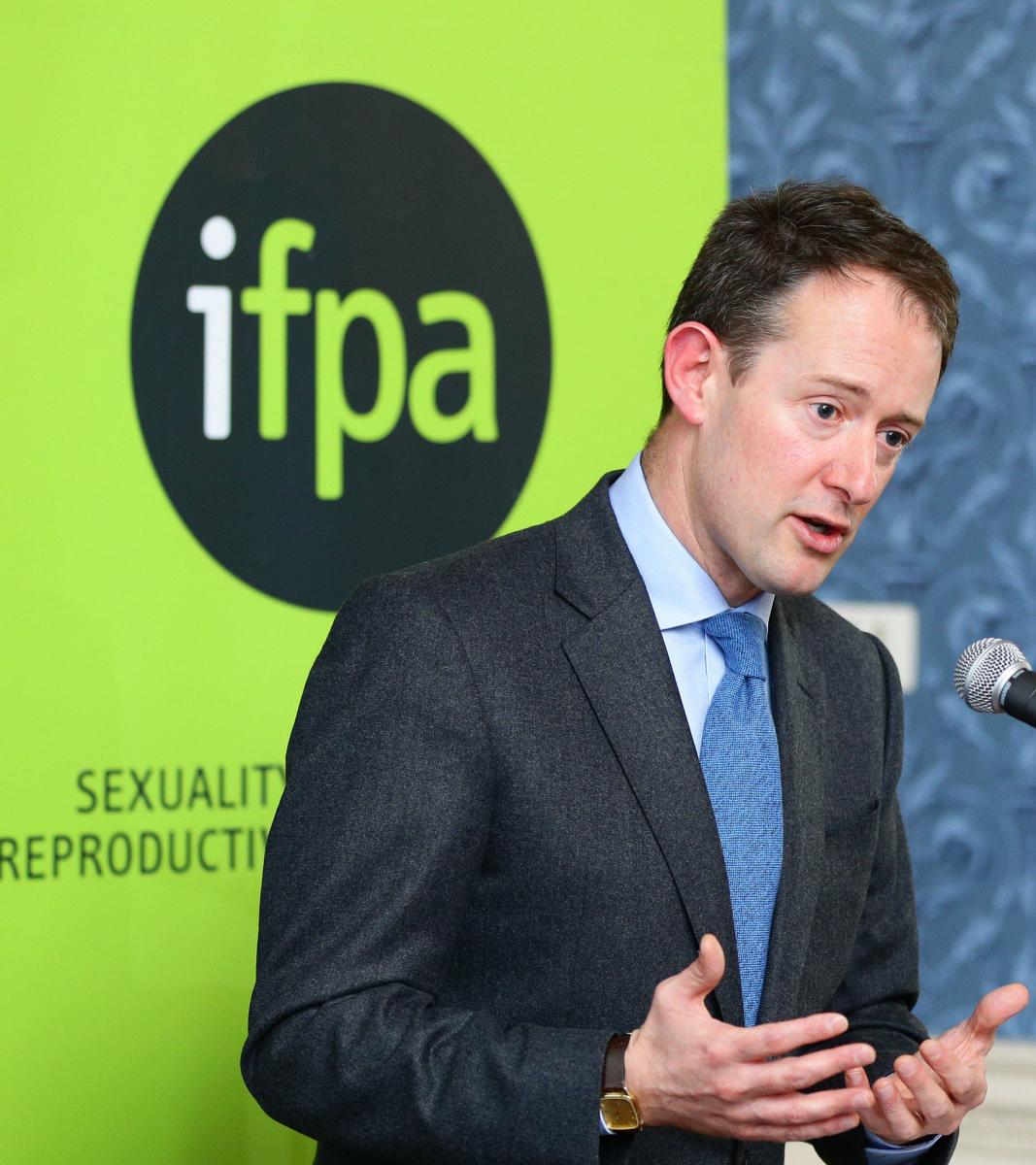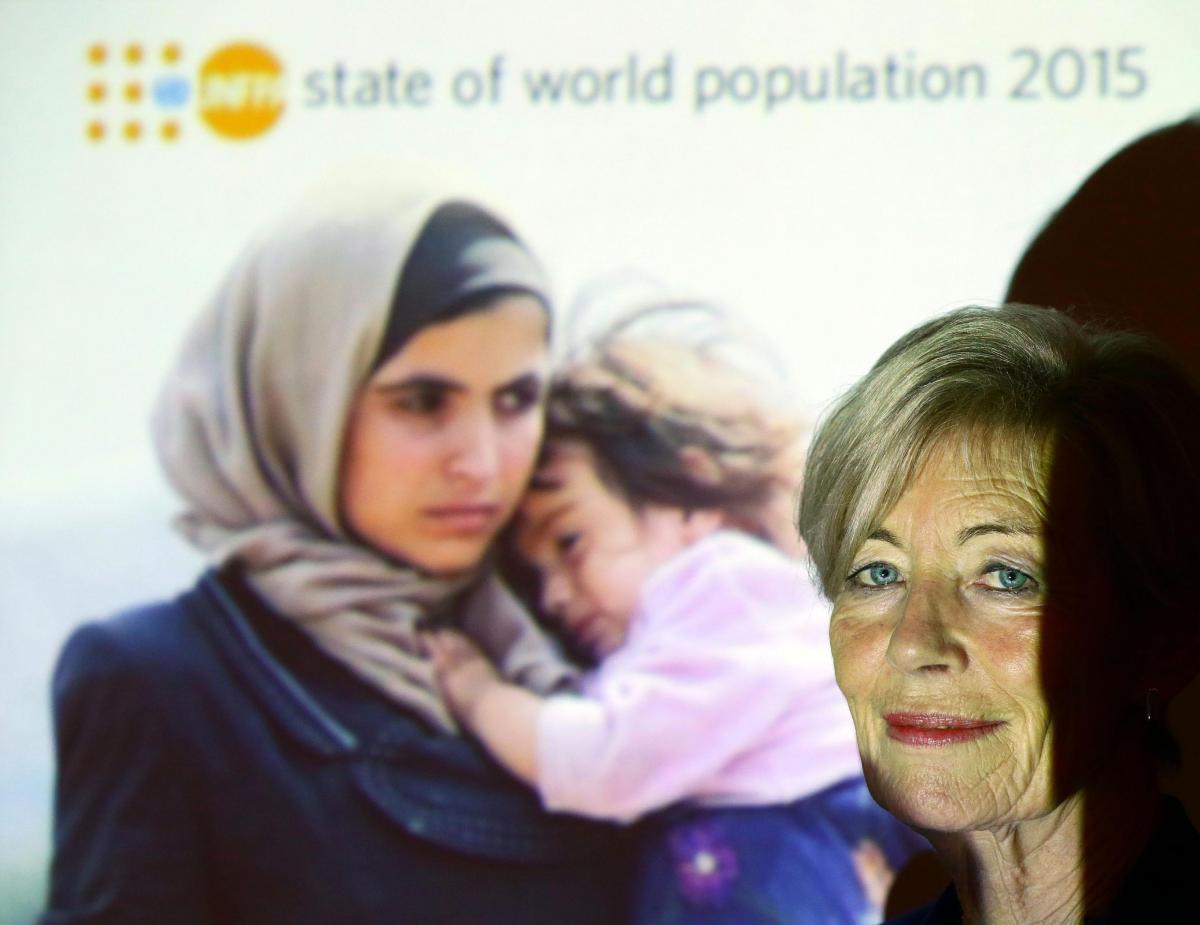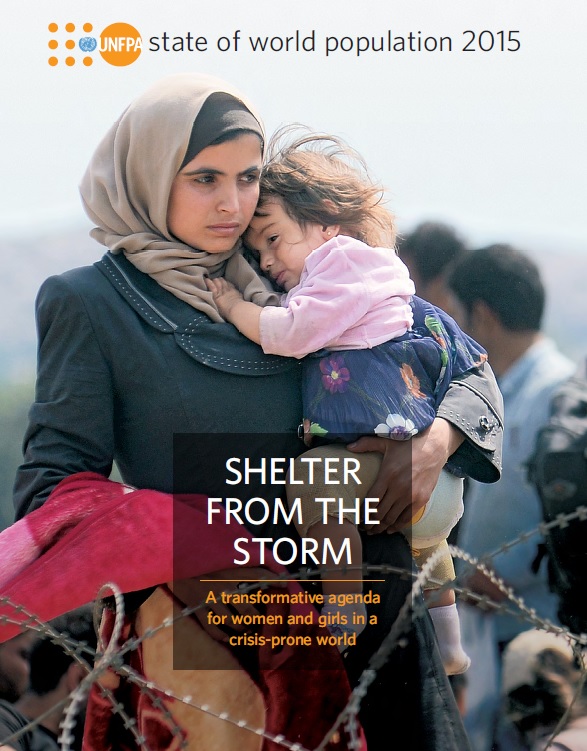 More than 100 million people are now in need of humanitarian assistance, more than at any time since the end of WWII. An estimated one quarter, or 26 million, are women and girls of reproductive age. Their needs and rights must be a priority for the world’s governments. This is the call to action of the 2015 report by the United Nations Population Fund (UNFPA) on the State of World Population (right), launched on 3rd December 2016 in Dublin.
More than 100 million people are now in need of humanitarian assistance, more than at any time since the end of WWII. An estimated one quarter, or 26 million, are women and girls of reproductive age. Their needs and rights must be a priority for the world’s governments. This is the call to action of the 2015 report by the United Nations Population Fund (UNFPA) on the State of World Population (right), launched on 3rd December 2016 in Dublin.
The launch was hosted by the IFPA, UNFPA’s Irish partner.
The report finds that when a crisis hits, women and adolescent girls are disproportionately affected. Disaster, conflict and displacement leave women and girls vulnerable to sexually transmitted infections, including HIV, and at risk of unwanted pregnancy. Pregnant women and girls also experience increased risk of maternal morbidity and mortality. Crises can also bring greater risk of gender-based violence, including partner violence, rape, child marriage, and trafficking. According to the report, three in five maternal deaths occur during disasters or conflicts, while 64% of unattended births occur in countries in or recovering from conflict.
Yet the reproductive healthcare needs of women and girls are rarely met in crisis humanitarian settings. And funding for reproductive health in such settings is low, both in amount and in share of overall funding.
Launching the report in Dublin today was Mr Seán Sherlock TD, Minister of State with Special Responsibility for Overseas Development Assistance, Trade Promotion and North South Co-operation:
“This year’s State of the World Population report has a poignant theme. Protection of the most vulnerable in emergencies, particularly women and girls, is a key policy priority for Ireland. I am proud of our record in this regard and we are one of a few countries actively engaged in the Call to Action Campaign for the protection of women and girls from violence during emergencies. We recognise that the needs of women, men, boys and girls are unique and different in emergency contexts, and significant risk factors exist for women and girls in particular. Humanitarian programmes must be designed and implemented to meet their needs and address their particular vulnerabilities appropriately”.
Significant progress has been made: women and girls who are refugees or displaced have more access to sexual and reproductive health services than at any time in the past. Yet need has now outstripped available funding and services, leaving unprecedented gaps.
The UNFPA report calls for humanitarian action to be transformed by making the sexual and reproductive health and rights of women and girls a central priority. If this is achieved, the benefits will carry on into the future as countries and communities rebuild their lives.
Presenting the report’s findings was Ms Jacqueline Mahon, UNFPA Senior Policy Advisor:
“The current refugee crisis is a reminder of how crises disrupt and undermine lives. Women and adolescent girls are bearing extraordinary burdens as the worsening storms of crises, wars and natural disasters leaves a long trail of turmoil and destruction. This report calls for action not only to help women and girls weather the storms that endanger their health, rights and future, but to put in place foundations of prevention, preparedness and empowerment”.
Also speaking at the launch was Ms Olivia Mitchell TD, Chair of the All-Party Oireachtas Interest Group on Sexual and Reproductive Health and Rights and Development:
“This report highlights the importance of building resilience within communities to better withstand and recover from crises. Ensuring women’s and girls’ sexual and reproductive health and rights is critical to such resilience. As we move forward with the new post-2015 development agenda, world leaders must commit to adequate funding and support to realise these rights.”
Also commenting on the report was Mr Niall Behan, IFPA Chief Executive:
“Crises reinforce, perpetuate and increase gender inequality, making bad situations worse for women and girls. UNFPA’s report is clear: humanitarian action must recognise the particular vulnerabilities facing women and girls and ensure their sexual and reproductive health and rights. Only then can we build the resilience of communities before, during and after crises.”
The State of World Population Report 2015, Shelter from the Storm: A Transformative Agenda for Women and Girls in a Crisis-Prone World, is available to download here. A visual of the report is available at http://www.unfpa.org/swop, while a summary of the report is available here.
Pictured below at the launch of the State of World Population Report 2015 in Dublin on December 3rd are:
Mr Seán Sherlock TD, Minister of State with Special Responsibility for Overseas Development Assistance, Trade Promotion and North South Co-operation; Ms Jacqueline Mahon, UNFPA Senior Policy Advisor of Global Health and Health Systems; Ms Olivia Mitchell TD, Chair of the All-Party Oireachtas Interest Group on Sexual and Reproductive Health and Rights and Development; and Mr Niall Behan, Chief Executive of the Irish Family Planning Association.
